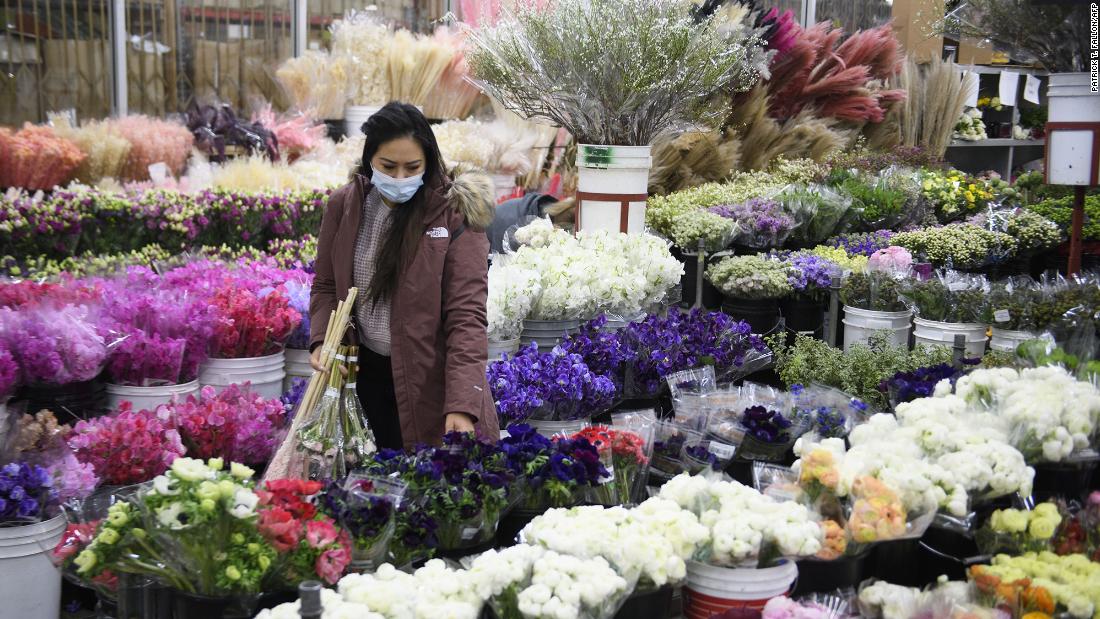“The continued spread of more transmissible variants could undermine the progress we made last month if we let our guard down,” said Rochelle Walensky, director of the Center for Disease Control and Prevention, during a meeting at the White House.
But by reducing cases, the US will give “fewer opportunities for variants to spread and less opportunities for new variants to emerge,” she added.
But the United States has two powerful tools that can help counter its spread and move the country further out of the pandemic tunnel, Dr. Anthony Fauci told CNN late on Wednesday.
“The two ways to combat this is one, to continue doing the types of public health interventions that we talk about all the time,” he said.
This includes the universal use of masks, social distance, removal from congested areas and regular hand washing.
“But also, as weeks and months pass, as you vaccinate more and more people, there is a vaccine that works against this variant,” added Fauci. “So if we launch the vaccine … and vaccinate as many people as quickly as possible, while maintaining public health measures, we should be in a good position.”
It will not be easy, he warned, because of the transmissibility of the variant – which is why “we have to act quickly on this,” said Fauci.
When the general public will have a chance
But vaccinating all of these people is likely to take longer.
“(Vaccines will be) available in July,” Fauci told CNN. “It may take a few more months, in fact, perhaps at the end of the summer, for everyone to be vaccinated.”
How long it will take will depend on “how efficiently you put doses in people’s arms,” he added.
On Wednesday, Kroger announced that its health division, Kroger Health, administered more than 380,000 Covid-19 vaccines in 25 states for groups, including essential health professionals, elderly populations and educators.
About 1,300 Kroger Health pharmacies are receiving and administering injections, the statement said, and when all 2,200 pharmacies start receiving vaccine doses, they will be able to administer nearly 500,000 vaccinations a week.
Kroger Health also announced a new vaccine scheduling tool, which can manage “more than 250,000 daily requests” and will allow people to check the vaccine’s eligibility.
Here’s how many people were vaccinated
More than 15.4 million people have been fully vaccinated, according to CDC data. That is about 4.6% of the US population.
Between 75% and 85% of the US population would need to be vaccinated for the country to achieve herd immunity, Fauci said, adding that the percentages are “purely estimates”.
“You don’t know what herd immunity really is until you reach a certain level and then, when you get below it, you start getting infections for the community,” said Fauci. “We know exactly what measles is, we don’t know what it is for yet (Covid-19). But I imagine it is somewhere between 75 to 85%.”
Fauci also said he hopes that when doses of the vaccine become widely available to the American public, a sufficient number of people will line up to receive an injection and the country will be able to achieve the herd’s immunity percentages.
CDC director warns against travel
Meanwhile, amid repeated warnings for Americans to continue taking security measures, the CDC director also urged the American public to avoid travel, even in the country.
Walensky was asked whether there would be any guidance or recommendation from the CDC on Covid-19 tests before domestic flights.
“We don’t have the tests now to make it really easy and possible … for people who are trying to travel,” she said. “You shouldn’t be traveling anyway.”
She said the agency is asking people to comply with travel guidelines, such as quarantine and subsequent testing, as the variants circulate and the country works to increase its testing capacity.
But instead, the United States has recently seen some of its busiest air travel days since the holidays.
TSA said it examined more than 967,000 people at airports on Monday and another 738,000 people on Tuesday.
CNN’s Michael Nedelman, Pete Muntean, Andrea Diaz, Rebekah Riess, Andrea Diaz, Amanda Sealy and John Bonifield contributed to this report.
